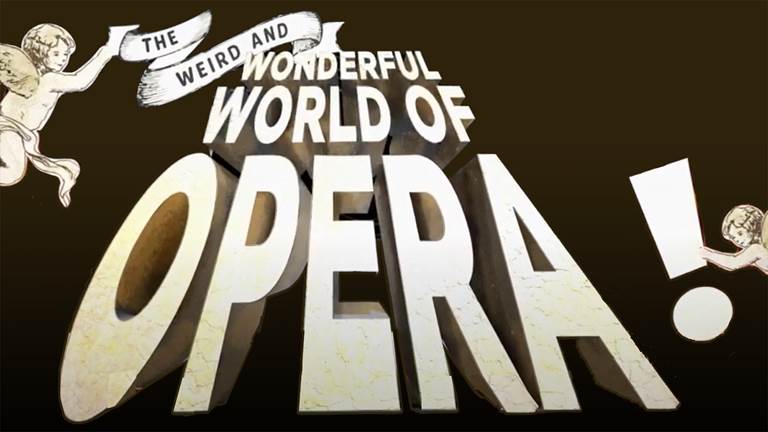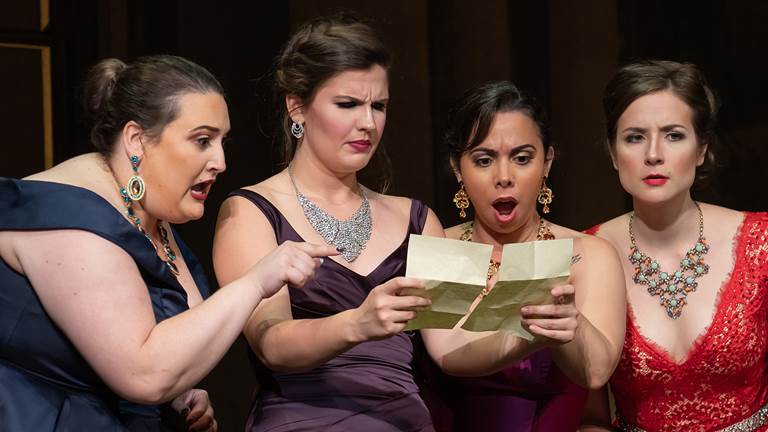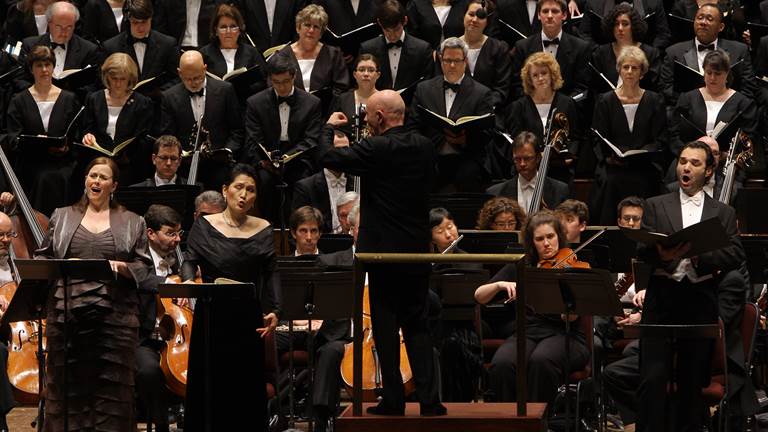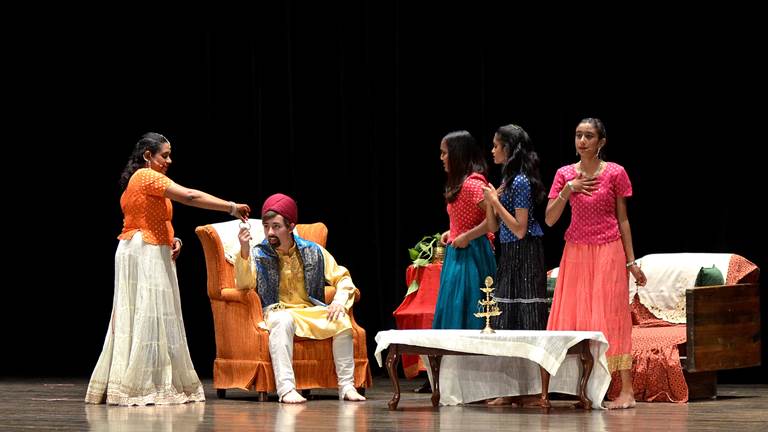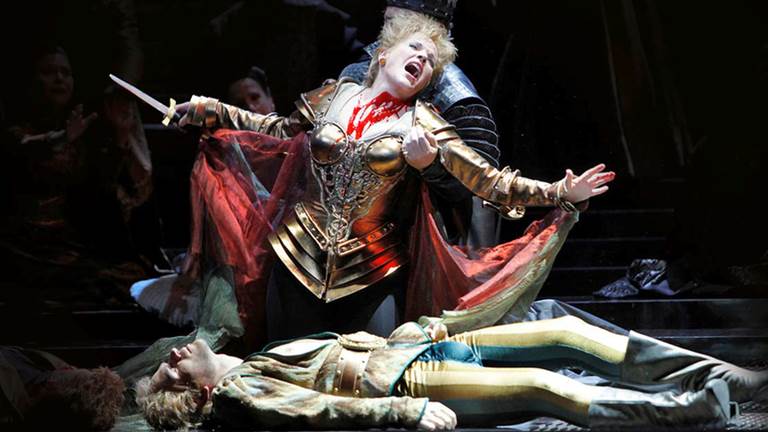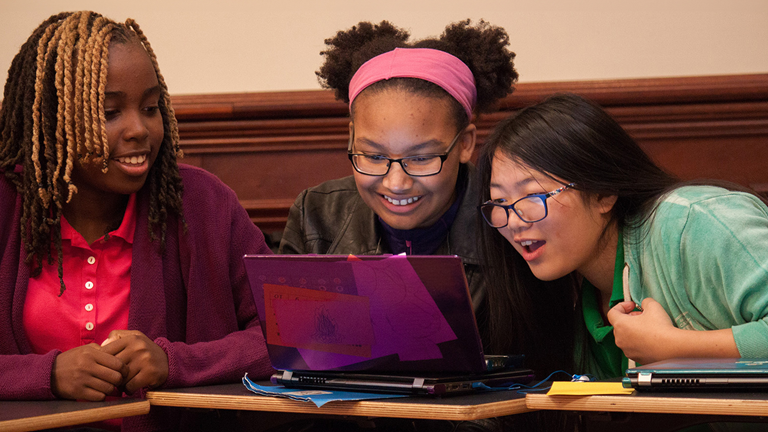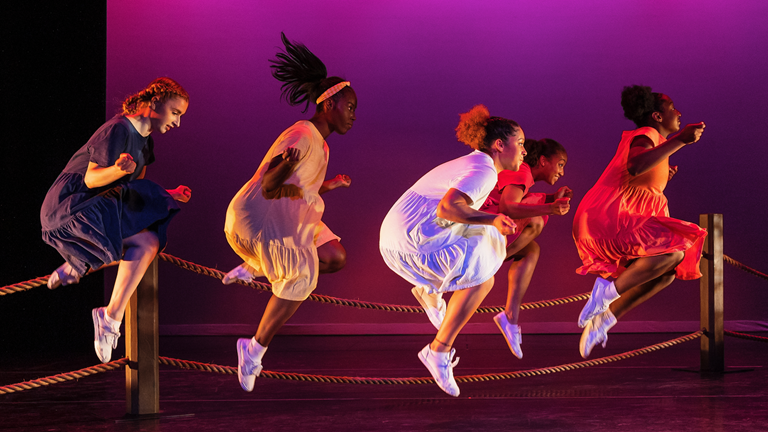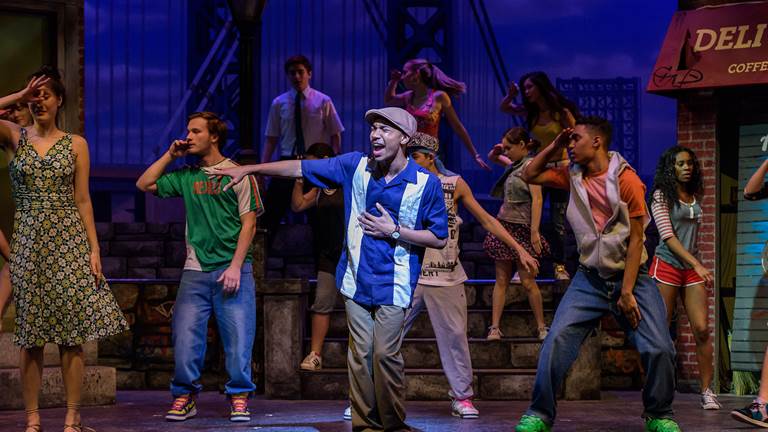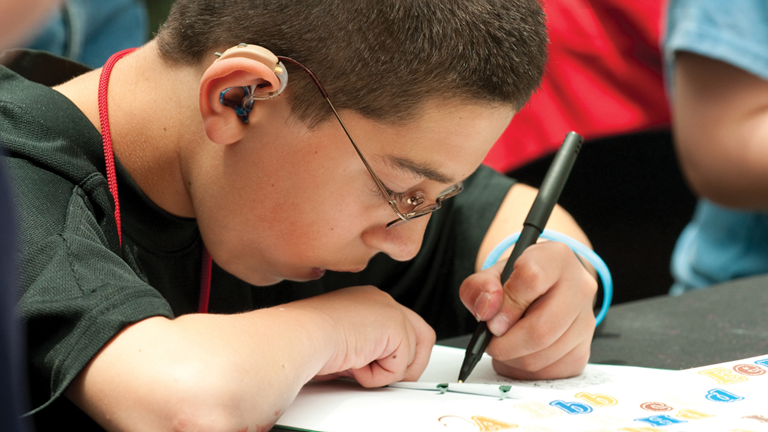FELICIA CURRY, DIRECTOR
What big ideas, images, or feelings were on your mind while working with the actors and the team who designed the slop puppet, the truck set, and the costumes?
I knew, almost immediately, that I wanted to bring the experience of a night in the Opera House at the Kennedy Center right to your school or neighborhood. I wanted to create an atmosphere that was grand and accessible. The marriage of magnificent music, color, movement, genuine emotion, and friendship all went into creating the perfect playground for our team.
What do you hope people will take away from this opera, from Elephant and Piggie’s story?
This show is an introduction to an art form you may not know much about, and I hope it inspires you to create your own art. I believe the SLOPERA! teaches us that it is important to appreciate things from other cultures. You may not understand, or even like everything, but it is important to try new things, read about things, and work to understand what is important to other people. As Elephant and Piggie show us, all friendships have ups and downs, but if you keep your mind and heart open, your world will only get bigger and bigger!
DANA SCOTT, MUSIC DIRECTOR and PIANIST
How can music help tell very dramatic and emotional stories like this one?
I think about music as a way to add feelings and sounds to go with what is happening on stage. As I work with the score (what we call the music when written down), I get to create the atmosphere of the opera. Sometimes the music is like a sound cue that goes with a certain action that is important. Other times, the music mirrors the words to help tell the story. Musical ideas can also make the audience think of a character, remind them of something that happened before, or give a clue about what might happen next. All of this can be created with only music! The possibilities still amaze me.
The singers use words, but you play the piano. In this opera, how do you help tell the story with an instrument like the piano?
When I play piano I think of myself as an orchestra. Sometimes I am a flute, or cello, or brass group! Sometimes I use sound to give a sense of the mood that the composer or librettist wanted. Sometimes I use a full, warm, rich tone when a character is happy, but sometimes I play quietly to show a character is worried or nervous. You might hear that when Gerald is not sure if he will really be able to try the slop! By playing in different, expressive ways, I can make singers feel a lot of energy, and that makes the performance better for the audience. Creating an environment with sound that supports the drama is the best part of how my instrument helps tell the story!
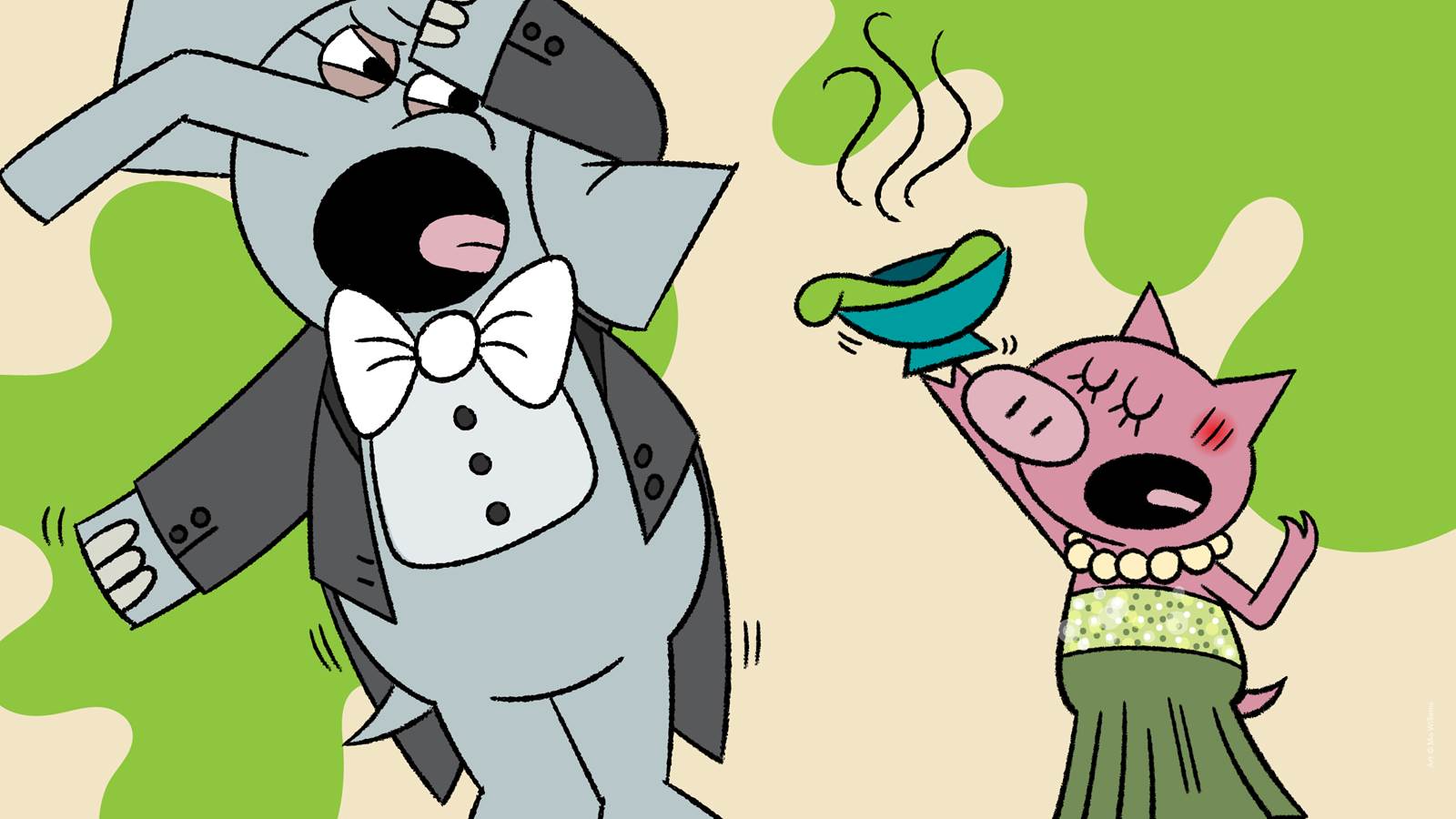
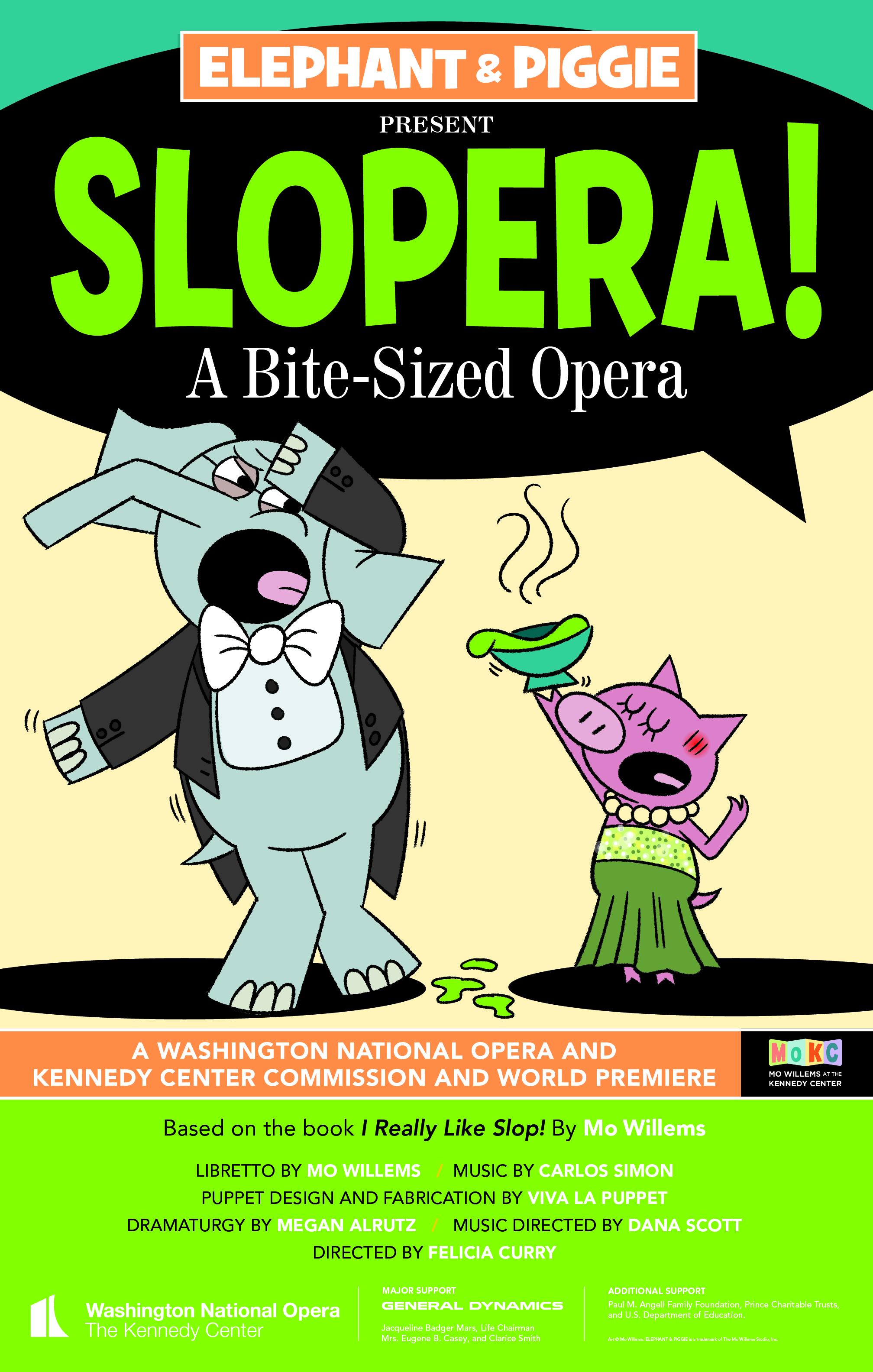
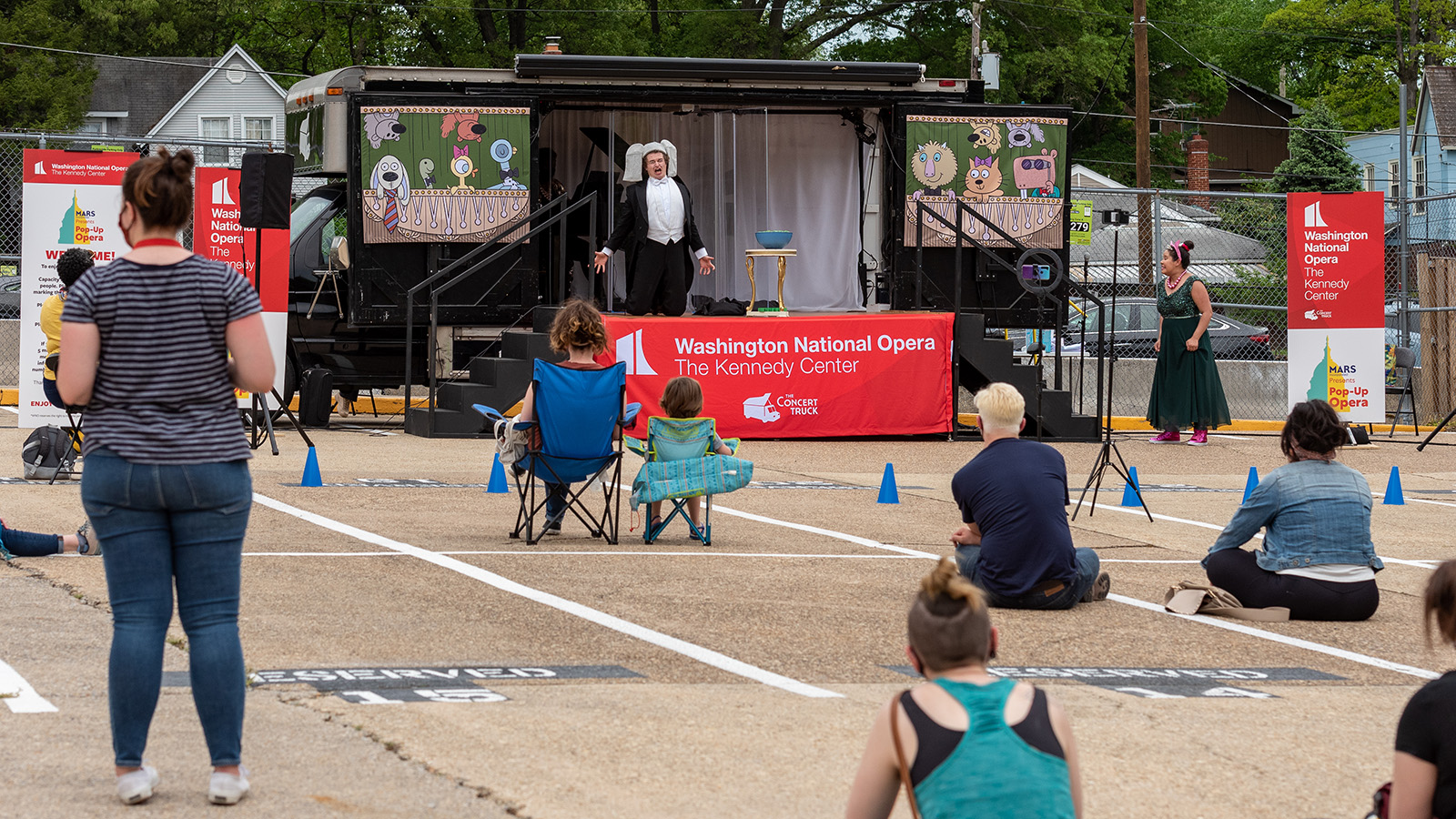
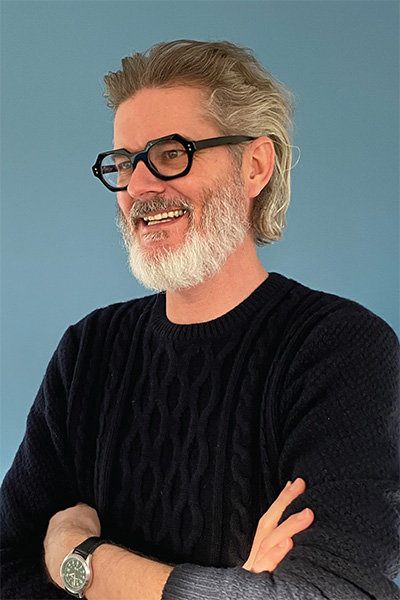
 Carlos Simon is a multi-faceted and highly sought-after composer whose music ranges from concert music for large and small ensembles to film scores with influences of jazz, gospel, and neo-romanticism. Recently announced as Composer-in-Residence at the Kennedy Center, Carlos’s commissioning highlights include premiere works with New York Philharmonic, Los Angeles Philharmonic, Los Angeles Opera, Philadelphia Orchestra, and Washington National Opera. The Philadelphia Enquirer described his music as ​“perfectly engaging and propulsive.” Simon’s latest album, My Ancestor’s Gift, which was released in April 2018 on Navona Records, epitomises Simon’s work by incorporating spoken word and historic recordings alongside traditional classical music, crafting a multi-faceted record that speaks to audiences past and future. In 2017, Carlos Simon joined the inaugural class of the Gabriela Lena Frank Academy of Music. He then went on to be named a Sundance/​Time Warner Composer Fellow in 2018, seeing him work at the legendary Skywalker Ranch, and he was a recipient of the Sphinx Medal of Excellence in 2021.
Carlos Simon is a multi-faceted and highly sought-after composer whose music ranges from concert music for large and small ensembles to film scores with influences of jazz, gospel, and neo-romanticism. Recently announced as Composer-in-Residence at the Kennedy Center, Carlos’s commissioning highlights include premiere works with New York Philharmonic, Los Angeles Philharmonic, Los Angeles Opera, Philadelphia Orchestra, and Washington National Opera. The Philadelphia Enquirer described his music as ​“perfectly engaging and propulsive.” Simon’s latest album, My Ancestor’s Gift, which was released in April 2018 on Navona Records, epitomises Simon’s work by incorporating spoken word and historic recordings alongside traditional classical music, crafting a multi-faceted record that speaks to audiences past and future. In 2017, Carlos Simon joined the inaugural class of the Gabriela Lena Frank Academy of Music. He then went on to be named a Sundance/​Time Warner Composer Fellow in 2018, seeing him work at the legendary Skywalker Ranch, and he was a recipient of the Sphinx Medal of Excellence in 2021. 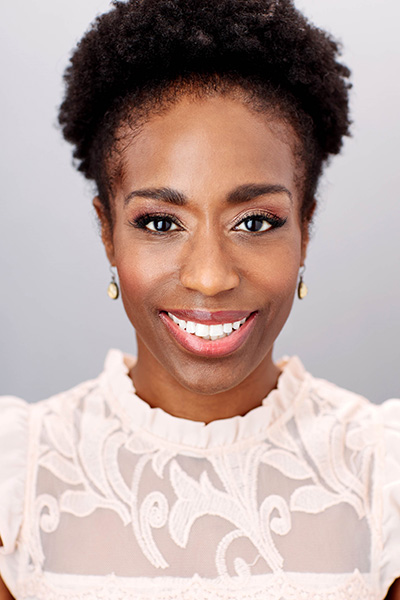 Felicia Curry is honored to be part of the SLOPERA! family, and is thrilled to be back in the room with Mo Willems! They last worked together at the Kennedy Center on Don’t Let the Pigeon Drive the Bus!, for which she was nominated for a 2020 Helen Hayes Award. She’s been nominated eight additional times for the Helen Hayes Award, and in 2018, she won the award for Lela & Co at Factory 449. In the DC Metro Area, she has performed at Arena Stage, Ford’s Theatre, Woolly Mammoth Theatre Company, Round House Theatre, Rep Stage, Studio Theatre, Signature Theatre, MetroStage, Imagination Stage, and Adventure Theatre, to name a few. Regionally, she has performed at the Gulfshore Playhouse and Virginia Repertory Theatre, where she received an RTCC Award for her work as Celie in The Color Purple. She has hosted theatreWashington’s Helen Hayes Awards three times and has been named one of “12 DC Stage Dynamos” by The Washington Post and one of “DC’s Biggest Theatre Stars” by Washington Magazine. She is a resident company member at Factory 449 in DC, Everyman Theatre in Baltimore, and an Artistic Associate at Ford’s Theatre. Currently, she can be seen as the new host for WETA Arts on PBS.
Felicia Curry is honored to be part of the SLOPERA! family, and is thrilled to be back in the room with Mo Willems! They last worked together at the Kennedy Center on Don’t Let the Pigeon Drive the Bus!, for which she was nominated for a 2020 Helen Hayes Award. She’s been nominated eight additional times for the Helen Hayes Award, and in 2018, she won the award for Lela & Co at Factory 449. In the DC Metro Area, she has performed at Arena Stage, Ford’s Theatre, Woolly Mammoth Theatre Company, Round House Theatre, Rep Stage, Studio Theatre, Signature Theatre, MetroStage, Imagination Stage, and Adventure Theatre, to name a few. Regionally, she has performed at the Gulfshore Playhouse and Virginia Repertory Theatre, where she received an RTCC Award for her work as Celie in The Color Purple. She has hosted theatreWashington’s Helen Hayes Awards three times and has been named one of “12 DC Stage Dynamos” by The Washington Post and one of “DC’s Biggest Theatre Stars” by Washington Magazine. She is a resident company member at Factory 449 in DC, Everyman Theatre in Baltimore, and an Artistic Associate at Ford’s Theatre. Currently, she can be seen as the new host for WETA Arts on PBS. 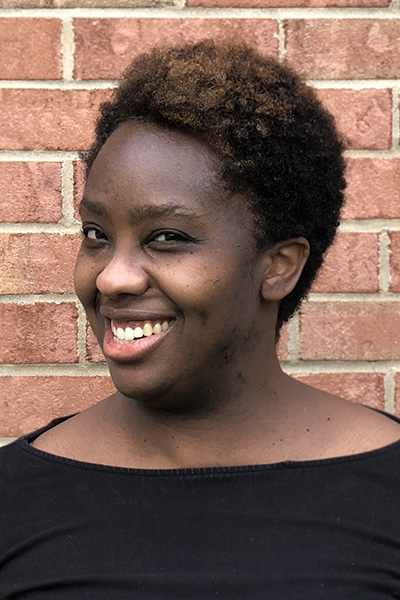 Dana Nichole Scott is a classically trained musician with a talent and passion for creating dynamic music. Ms. Scott works in operatic and musical theater productions, but also leads choral and instrumental ensembles. As a vocal coach and collaborative pianist, Ms. Scott accompanies for competitions and recitals, and frequently serves as an adjudicator. Ms. Scott began developing her musical career at a young age, winning several competitions and exploring her skills as a musical Disney cast member. Ms. Scott studied at New England Conservatory where she earned her Bachelor of Music in Piano Performance. She received her Master of Music in Collaborative Piano from the Peabody Institute at Johns Hopkins University where she studied with Eileen Cornett and JoAnn Kulesza. Over the course of her career, Ms. Scott has enjoyed working with master artists who helped her bring her passion for music to the stage. After her formal education, Ms. Scott balanced a host of responsibilities that allowed her to have a vibrant career. During her travels, she realized that a teaching career would allow her to pass on her experience and knowledge, and has spent the last few years helping others to grow through musical performance at schools in the Baltimore area.
Dana Nichole Scott is a classically trained musician with a talent and passion for creating dynamic music. Ms. Scott works in operatic and musical theater productions, but also leads choral and instrumental ensembles. As a vocal coach and collaborative pianist, Ms. Scott accompanies for competitions and recitals, and frequently serves as an adjudicator. Ms. Scott began developing her musical career at a young age, winning several competitions and exploring her skills as a musical Disney cast member. Ms. Scott studied at New England Conservatory where she earned her Bachelor of Music in Piano Performance. She received her Master of Music in Collaborative Piano from the Peabody Institute at Johns Hopkins University where she studied with Eileen Cornett and JoAnn Kulesza. Over the course of her career, Ms. Scott has enjoyed working with master artists who helped her bring her passion for music to the stage. After her formal education, Ms. Scott balanced a host of responsibilities that allowed her to have a vibrant career. During her travels, she realized that a teaching career would allow her to pass on her experience and knowledge, and has spent the last few years helping others to grow through musical performance at schools in the Baltimore area.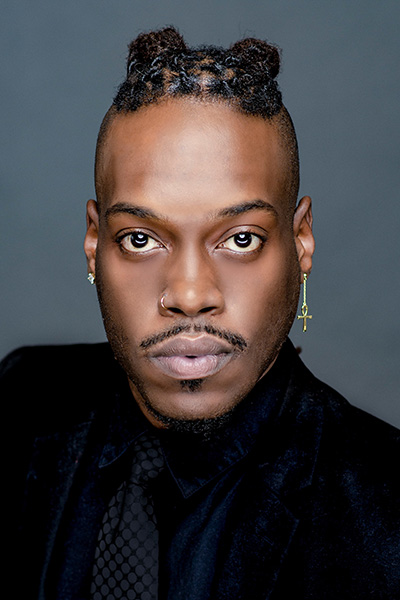 Maryland-born and bred baritone Daniel J. Smith is a graduate of George Mason University with a MM in Vocal Performance and Winston-Salem State University with a BS in Music Business. Most recently Smith joined the cast of Stirring the Waters Across America and Devine, Hamer, Gray: A New American Musical (in development). Roles include Aeneas (Dido and Aeneas); King Melchior (Amahl and the Night Visitors); L’horloge comtoise (L’enfant et les sortilèges); Marcello (La Bohème); Pirate King (The Pirates of Penzance); Antonio (The Marriage of Figaro); George, Earl of Mountararat (Iolanthe); and scenes from Rossini’s L’Italiana in Algeri and La Cenerentola, all with Mason Opera. He has also performed as Barone Douphol in La traviata (Northwest Florida Symphony Orchestra), Zodzetrick in Scott Joplin’s Treemonisha (Opera Northern Virginia), and Count Almaviva in The Marriage of Figaro and Papageno in The Magic Flute (Almalfi Coast International Music Festival). Smith placed in the state and regional National Association of Teachers of Singing competitions and was a semi-finalist at the 2019 Classical Singer Convention. As a featured soloist, Smith appeared with the Winston-Salem State University Choir; the Ben Holt Memorial Branch of the National Association of Negro Musicians; the World Federation of Friends of Museums; and in I Am My Ancestors, a concert sponsored by I Am Confidence, LLC.
Maryland-born and bred baritone Daniel J. Smith is a graduate of George Mason University with a MM in Vocal Performance and Winston-Salem State University with a BS in Music Business. Most recently Smith joined the cast of Stirring the Waters Across America and Devine, Hamer, Gray: A New American Musical (in development). Roles include Aeneas (Dido and Aeneas); King Melchior (Amahl and the Night Visitors); L’horloge comtoise (L’enfant et les sortilèges); Marcello (La Bohème); Pirate King (The Pirates of Penzance); Antonio (The Marriage of Figaro); George, Earl of Mountararat (Iolanthe); and scenes from Rossini’s L’Italiana in Algeri and La Cenerentola, all with Mason Opera. He has also performed as Barone Douphol in La traviata (Northwest Florida Symphony Orchestra), Zodzetrick in Scott Joplin’s Treemonisha (Opera Northern Virginia), and Count Almaviva in The Marriage of Figaro and Papageno in The Magic Flute (Almalfi Coast International Music Festival). Smith placed in the state and regional National Association of Teachers of Singing competitions and was a semi-finalist at the 2019 Classical Singer Convention. As a featured soloist, Smith appeared with the Winston-Salem State University Choir; the Ben Holt Memorial Branch of the National Association of Negro Musicians; the World Federation of Friends of Museums; and in I Am My Ancestors, a concert sponsored by I Am Confidence, LLC.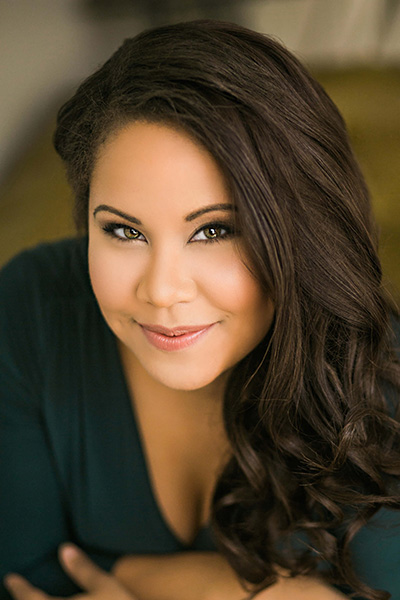 Brazilian-born soprano Ariana Wehr is a recent graduate of the Cafritz Young Artist Program with Washington National Opera at the Kennedy Center. Highlights of the 2019-2020 season include competing in the 2nd International Music Competition Harbin in Harbin, China; a gala with Heartbeat Opera performing works by Vivaldi and Mozart; and a return to Washington National Opera and a debut with the Mostly Mozart Festival at Lincoln Center to reprise the roles of Girlfriend #1/Nurse/Congregant in Jeanine Tesori’s Blue (cancelled due to the pandemic, but a commercial recording is planned). Upcoming performances include debuts with Boston Lyric Opera in Terence Blanchard’s Champion. Ariana has received awards from The Sullivan Foundation, The George London Foundation, Metropolitan Opera National Council auditions as a National Semi-Finalist, and the Opera Index Foundation, and has competed internationally in the Mt. Fuji International Opera Competition in Japan, and the s’Hertogenbosch International Vocal Competition in the Netherlands. In the 2018-2019 season, the soprano sang Despina in Così fan tutte for Opera in the Heights, Gretel in Hansel and Gretel in a return to Brava! Opera Theater, a debut with the Naples Philharmonic singing Pulcinella by Stravinsky, and Micäela in Carmen in a return engagement with Opera Louisiane.
Brazilian-born soprano Ariana Wehr is a recent graduate of the Cafritz Young Artist Program with Washington National Opera at the Kennedy Center. Highlights of the 2019-2020 season include competing in the 2nd International Music Competition Harbin in Harbin, China; a gala with Heartbeat Opera performing works by Vivaldi and Mozart; and a return to Washington National Opera and a debut with the Mostly Mozart Festival at Lincoln Center to reprise the roles of Girlfriend #1/Nurse/Congregant in Jeanine Tesori’s Blue (cancelled due to the pandemic, but a commercial recording is planned). Upcoming performances include debuts with Boston Lyric Opera in Terence Blanchard’s Champion. Ariana has received awards from The Sullivan Foundation, The George London Foundation, Metropolitan Opera National Council auditions as a National Semi-Finalist, and the Opera Index Foundation, and has competed internationally in the Mt. Fuji International Opera Competition in Japan, and the s’Hertogenbosch International Vocal Competition in the Netherlands. In the 2018-2019 season, the soprano sang Despina in Così fan tutte for Opera in the Heights, Gretel in Hansel and Gretel in a return to Brava! Opera Theater, a debut with the Naples Philharmonic singing Pulcinella by Stravinsky, and Micäela in Carmen in a return engagement with Opera Louisiane.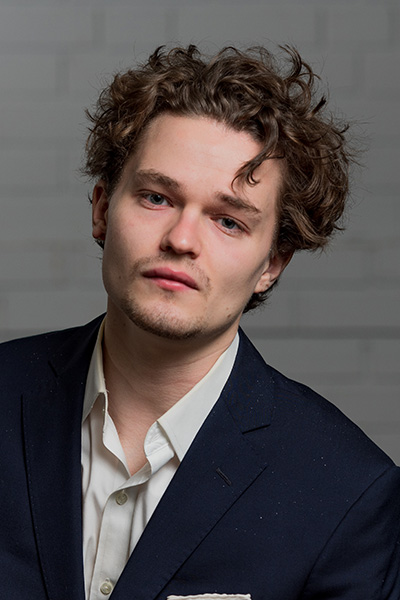 German baritone Dennis Chmelensky joins the Washington National Opera as a member of the Cafritz Young Artist Program for the 2020-21 season. Praised for his “strikingly individual timbre” (Philadelphia Magazine) and “his moving, rich baritone accompanied by real acting” (Phindie), Dennis recently performed the title role Don Giovanni in a Curtis/Opera Philadelphia co-production and later in Mexico City and León, Guanajuato. Dennis is a 2018 Opera Awards career grant recipient. Operatic credits also include Junior (A Quiet Place), Papageno (Die Zauberflöte), Paul (Empty the House), Golaud (Impressions de Pelléas), Junius (The Rape of Lucretia), Mr. Gobineau (The Medium), Perichaud (La rondine), Blansac (La scala di seta), Spinellochio (Gianni Schicci), Pirelli (Sweeney Todd), The Clock (L‘enfant et les sortilèges), and Schaunard (La bohème). A Berlin native, Dennis’s love for lieder and new music since led him to unique opportunities throughout his career, including performing works by Wolf, Schubert, Rorem, and Mahler throughout the United States and Europe, and working with many living composers. Dennis was a finalist at the Young Concert Artists competition and received multiple grants from the Gerda Lissner Foundation. Dennis holds a Bachelor of Music degree and Master of Music degree from the Curtis Institute of Music. He also studied conducting at the University of the Arts Berlin. His debut album, DENNIS, was released in 2009 by Sony Music.
German baritone Dennis Chmelensky joins the Washington National Opera as a member of the Cafritz Young Artist Program for the 2020-21 season. Praised for his “strikingly individual timbre” (Philadelphia Magazine) and “his moving, rich baritone accompanied by real acting” (Phindie), Dennis recently performed the title role Don Giovanni in a Curtis/Opera Philadelphia co-production and later in Mexico City and León, Guanajuato. Dennis is a 2018 Opera Awards career grant recipient. Operatic credits also include Junior (A Quiet Place), Papageno (Die Zauberflöte), Paul (Empty the House), Golaud (Impressions de Pelléas), Junius (The Rape of Lucretia), Mr. Gobineau (The Medium), Perichaud (La rondine), Blansac (La scala di seta), Spinellochio (Gianni Schicci), Pirelli (Sweeney Todd), The Clock (L‘enfant et les sortilèges), and Schaunard (La bohème). A Berlin native, Dennis’s love for lieder and new music since led him to unique opportunities throughout his career, including performing works by Wolf, Schubert, Rorem, and Mahler throughout the United States and Europe, and working with many living composers. Dennis was a finalist at the Young Concert Artists competition and received multiple grants from the Gerda Lissner Foundation. Dennis holds a Bachelor of Music degree and Master of Music degree from the Curtis Institute of Music. He also studied conducting at the University of the Arts Berlin. His debut album, DENNIS, was released in 2009 by Sony Music.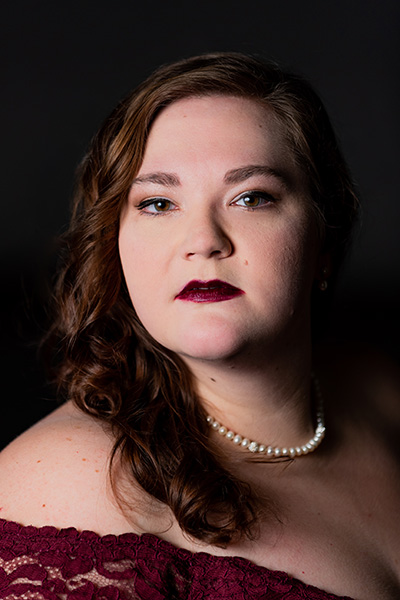 Suzannah Waddington, an American-Canadian soprano from Philadelphia, has just finished her second year as a Bailey Apprentice Artist with Palm Beach Opera and is very excited for her first year as a Cafritz Young Artist with Washington National Opera. Recently, she was a Semi-Finalist in the Metropolitan Opera National Council Auditions in 2020. She received her bachelor’s and master’s degrees in vocal performance from Houghton College where she studied with Kelley Hijleh and Mitchell Hutchings. Her recent opera credits include bel canto scenes with Si Parla! Si Canta in Arona, Italy; Rosalinde in Palm Beach Opera’s Family Performance of The Revenge of the Bat (Die Fledermaus); as well as concert productions of Die Zauberflöte (Pamina), Così fan tutte (Fiordiligi), and Mazepa (Maria) with Russian Opera Workshop.
Suzannah Waddington, an American-Canadian soprano from Philadelphia, has just finished her second year as a Bailey Apprentice Artist with Palm Beach Opera and is very excited for her first year as a Cafritz Young Artist with Washington National Opera. Recently, she was a Semi-Finalist in the Metropolitan Opera National Council Auditions in 2020. She received her bachelor’s and master’s degrees in vocal performance from Houghton College where she studied with Kelley Hijleh and Mitchell Hutchings. Her recent opera credits include bel canto scenes with Si Parla! Si Canta in Arona, Italy; Rosalinde in Palm Beach Opera’s Family Performance of The Revenge of the Bat (Die Fledermaus); as well as concert productions of Die Zauberflöte (Pamina), Così fan tutte (Fiordiligi), and Mazepa (Maria) with Russian Opera Workshop.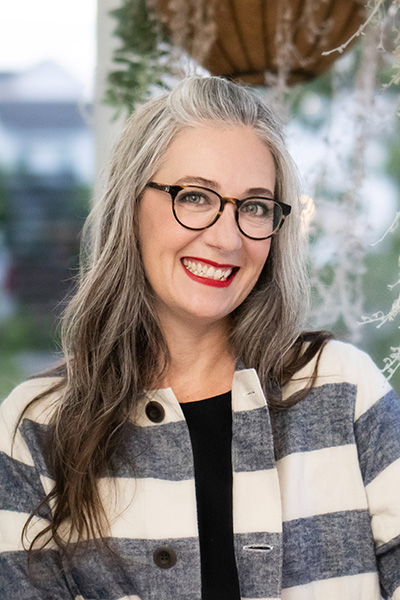 Megan Alrutz is an artist, educator, and scholar with over 20 years of experience in theatre, media, and interdisciplinary performance for youth and families. She has directed and created several nationally recognized theatre pieces and interactive installations, with a special interest in theatre for the very young, interdisciplinary performance projects, and visually dynamic staging. Megan’s work has been produced or presented by the Alliance Theatre, The New Victory, Kennedy Center, Orlando REP, Seattle Children’s Theatre, Arts on Horizon, and Metro Theater. She is a long-time collaborator of author/illustrator Mo Willems and has worked as the producer, dramaturg, and/or director on his musicals, interactive engagements, and other live and televised performance work. Megan is currently the dramaturg on Mo Willem’s artistic residencies and productions with the JF Kennedy Center for the Performing Arts and HBO Max. She is also a professor and associate chair at The University of Texas at Austin’s Department of Theatre and Dance where she writes and teaches about Theatre for Young Audiences, Applied Theatre, and Digital Storytelling.
Megan Alrutz is an artist, educator, and scholar with over 20 years of experience in theatre, media, and interdisciplinary performance for youth and families. She has directed and created several nationally recognized theatre pieces and interactive installations, with a special interest in theatre for the very young, interdisciplinary performance projects, and visually dynamic staging. Megan’s work has been produced or presented by the Alliance Theatre, The New Victory, Kennedy Center, Orlando REP, Seattle Children’s Theatre, Arts on Horizon, and Metro Theater. She is a long-time collaborator of author/illustrator Mo Willems and has worked as the producer, dramaturg, and/or director on his musicals, interactive engagements, and other live and televised performance work. Megan is currently the dramaturg on Mo Willem’s artistic residencies and productions with the JF Kennedy Center for the Performing Arts and HBO Max. She is also a professor and associate chair at The University of Texas at Austin’s Department of Theatre and Dance where she writes and teaches about Theatre for Young Audiences, Applied Theatre, and Digital Storytelling.